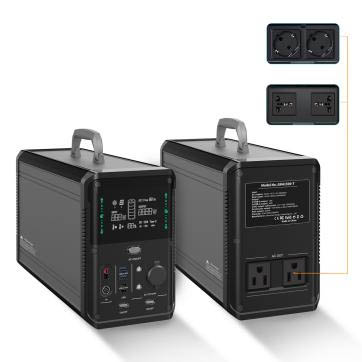Americans are understandably anxious about switching to electric vehicles after more than 100 years of using gasoline. Two of the top three concerns about EVs surround the charging, with 60 percent of AAA survey respondents saying there are not enough places to charge; and 58 percent are concerned about running out of charge when driving.
Home Level 2 (240-volt) wall-mounted charging boxes or Electric Vehicle Supply Equipment (EVSE) are the answer to this, virtually eliminating the need for public charging for the owner. Most Level 2 chargers can fill up everything but the biggest electric vehicles in an 8- to 10-hour overnight timespan. But there are almost as many varieties of chargers as EV themselves. Ev Charging Stations Type1

Level 2 chargers are an additional expense as most manufacturers only provide Level 1 chargers with the vehicle, though Tesla recently made its Level 1 charger optional. Those chargers work well for plug-in hybrids with a small battery, but they can take dozens of hours to recharge a 300-mile EV.
The Ford F-150 Lightning comes standard with a Mobile Power Cord, which is good for 30 amps of charging power. Optionally buyers can choose the Ford Charge Station Pro, which requires professional installation, for $1,310.
The Chevrolet Bolt also comes with a Level 1 charge cord, but recommends adding the Dual Level Charge Cord (standard on the Bolt EUV) for faster home charging if buyers have access to a 240-volt outlet. Chevrolet will also cover the cost of installation if a Level 2 home charger is bought.
For the Mercedes-EQ EVs, a Level 1 charger is optional. It doesn't offer a Level 2 from the factory, but recommends the ChargePoint Home Flex charger, which is $725 on Amazon.
Nissan recently announced a partnership with Wallbox, an electric vehicle charging company, so owners of the 2023 Nissan Leaf and the forthcoming 2023 Nissan Ariya will be able to add the Level 2 charger to their purchase.
Level 2 chargers not coming from manufacturers range between $500 and $1,000 though professional installation will cost extra on the chargers that don't plug in to a standard 110-volt outlet. Buyers that have a 240-volt circuit already in the garage will get a price break that installation. Here's what buyers should be thinking about when choosing a home Level 2 EV charger.
At one time, the most important factor in choosing a home EV charger was compatibility with your vehicle. Thankfully, now for Level 2 charging, the usual J1772 connection point works on every car in North America, except for Tesla, which uses its own proprietary connector. However, even Teslas come with an adapter so if a buyer switches from Ford to the brand, the Level 2 home charger will still work.
The difference between Levels 1 and 2 is stark. The Ford Mustang Mach-E can regain about 3 miles per charging hour on a Level 1 system. It can regain more than 20 miles per charging hour on a Level 2 charger. The Mercedes EQS sedan gains about 4 miles per charging hour on a 110-volt circuit and around 25 miles per charging hour on a Level 2 EVSE.
Level 2 chargers deliver from 16 amps to 80 amps. Compare that to about 12 amps on a Level 1 charger and buyers will see how much faster a recharge can be. Any charger that delivers 40 amps or above will work perfectly for any modern EV, and many upcoming ones. Those that deliver that kind of amperage will require a 240-volt circuit. Buyers should remember to check the maximum charge rate of their EV, and factor than in as well.
Installation is an common and relatively simple job for an electrician, as long as buyers have two open spaces in their electric panel. If they don't, they will need a bigger panel. An electrician can give you an estimate of the costs up front. Don't be afraid to consult more than one pro.
Getting a Level 2 charger hardwired into a panel without an outlet will cost more (it will also be permanent). If a 240-volt outlet is already being used in the garage by a dryer (or welder), buyers won't be able to use them both at the same time.
Buyers will have to consider where their charge port is located on their electric vehicle to decide where to install the Level 2 charger. Cord lengths range from about 12 to 25 feet. The Nissan Leaf's charge port is in the nose of the vehicle. Most EVs have them on the side, sometimes near the front fender, some in the back.
Level 2 chargers can be placed outside as easily as inside, though buyers should make sure the charger they choose is recommended to withstand the elements. Those will have to be hardwired, according to most building codes, so those won't be able to be taken if the buyer relocates.
Most of the Level 2 chargers have an app that comes with them to program charge times, look for the cheapest rates and set a car for conditioning in the morning, which saves the battery before it gets rolling. Most chargers also have LEDs to tell the owner what it's doing. It would also be wise to look for a charger that restarts automatically if the power goes out. Buyers wouldn't want to wake up after a quick outage to an uncharged vehicle.
Here are a few highly rated examples of Level 2 EV chargers from Amazon below.
This hardwired charger maxes out at 48 amps of current and is backed by a three-year warranty. It comes with 25 feet of charging cable and is suitable for outdoor installation.
This charger can be hardwired or plugged in and is also rated for outdoor use. It has a maximum charge of 48 amps, but comes set for 40 amps. It needs to be connected to Wi-Fi to change the default rate.
The JuiceBox 40 is, as the name implies, a 40-amp unit and it can be used both indoors and outdoors. It comes with a cable holder and three-year warranty can can be scheduled to charge when the price is the lowest.
The Autel MaxiCharger is one of the most powerful available and comes with a holster for its 25-foot cord. Wi-Fi makes it upgradeable while a weather-resistant make it capable for use outdoors. Autel offers 24-hour support as well.
The Wallbox Pulsar Plus connects to Wi-Fi and can be controlled by voice with Alexa or Google Home. It charges between 16 at 48 amps and like the others, can take advantage of off-peak electricity rates automatically.
Newsweek may earn a commission from links on this page, but we only recommend products we back. We participate in various affiliate marketing programs, which means we may get paid commissions on editorially chosen products purchased through our links to retailer sites.

Ev Charging Station Type1 Ac Join half a million readers enjoying Newsweek's free newsletters